release time:2023-12-14 11:07:25
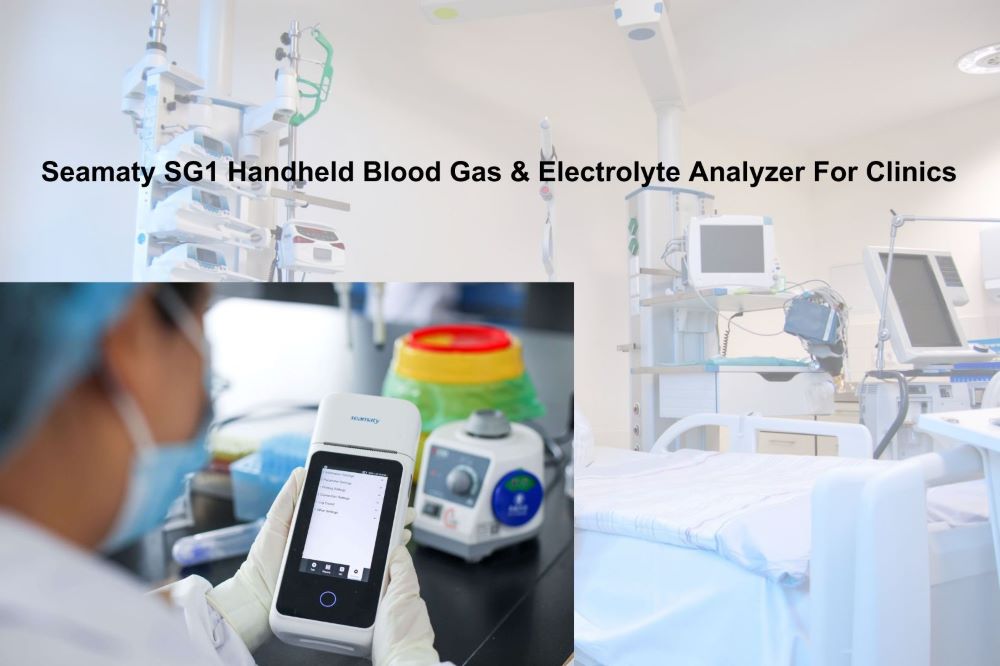
Seamaty SG1 is a portable blood gas and electrolyte analyzer that uses dry electrochemical method combined with microfluidic technology. The device is a handheld blood gas analyzer, with a small size and weight of only 0.6kg, which can be easily placed in the palm of your hand, making it convenient for clinicians to carry with them.
The Seamaty SG1 is a well-designed and user-friendly blood gas and electrolyte analyzer that offers a number of advantages over other products on the market. Here are some additional details that highlight its strengths:
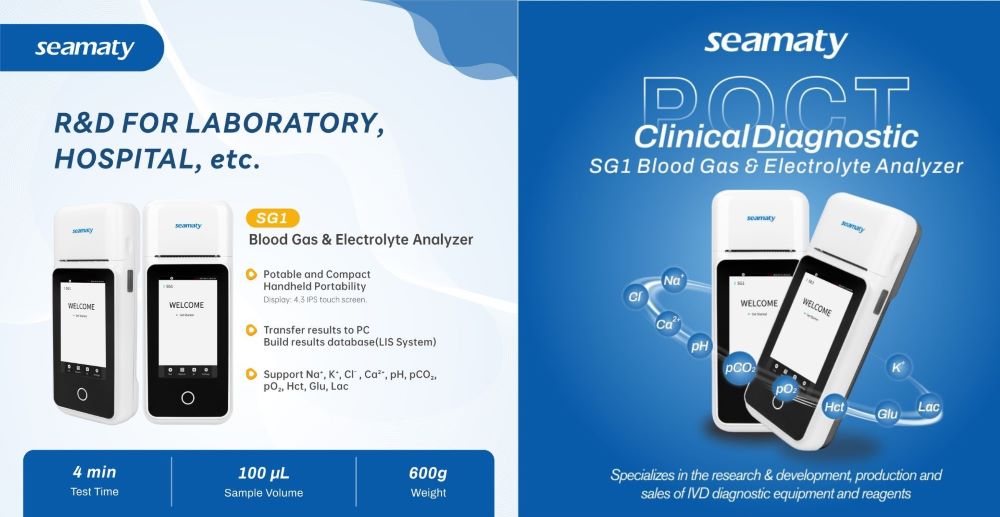
Seamaty SG1 can test blood gas and electrolyte items, including:
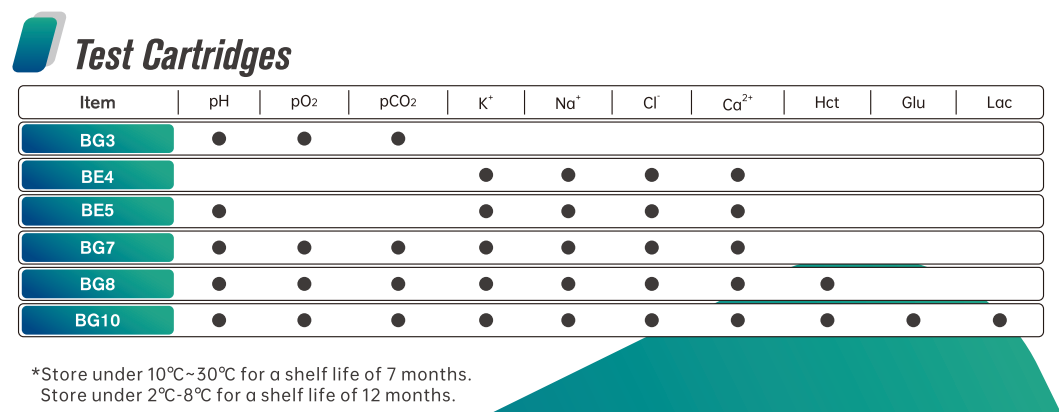
Seamaty SG1 is suitable for hospitals of all levels and primary healthcare institutions, and can be used in the following departments:
Overall, the Seamaty SG1 is a game-changer for small clinics and primary healthcare institutions by offering a portable, accurate, and efficient solution for blood gas and electrolyte testing. Its combination of advanced technology, user-friendly design, and cost-effectiveness makes it a valuable addition to any healthcare provider's arsenal.
Recommended further reading:
1. Top 8 Blood Gas and Electrolyte Analyzers in 2024: Brands, Features, Prices
2. Decoding Blood Gas Analyzers(BGA): Selecting, Applications, and Top 6 Picks
2. Portable Blood Gas Analyzers: Empowering Remote Healthcare and Emergency Medical Services
3. A Cost-Effective Alternative to the Abbott i-STAT: Seamaty SG1 Blood Gas&Electrolyte Analyzer
4. Not all Blood Gas Analyzers are Suitable for POC Testing, Here's Why
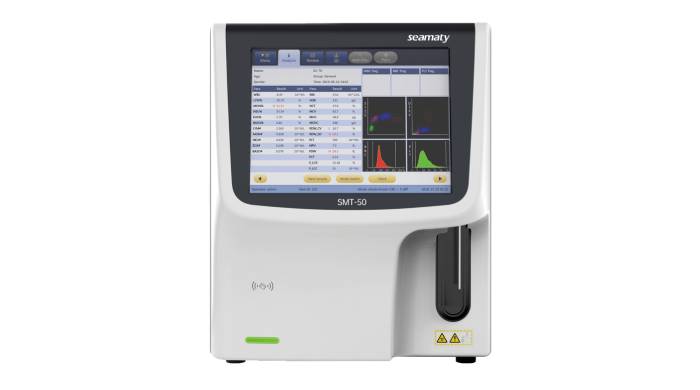
2022-09-29
A CBC test machine is a type of medical equipment that is used to measure the levels of red blood cells, white blood cells, and platelets in a person's blood. This information is important in order to diagnose and treat various medical conditions.
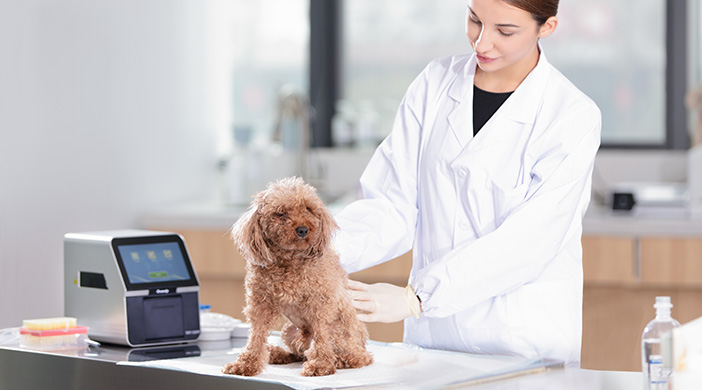
2021-11-17
What do you need to check for pet health check? What do these exams do? The next three articles share information about the Physical exam, Blood test, Complete blood count /CBC, Thyroid panel, Heartworm antigen test, FeLV/FIV test, Fecal exam, Urinalysis, and the Pet Health Check. X-ray, skin examination, major eye examination, Ear cytology, Fine needle aspiration Fine needle aspiration.
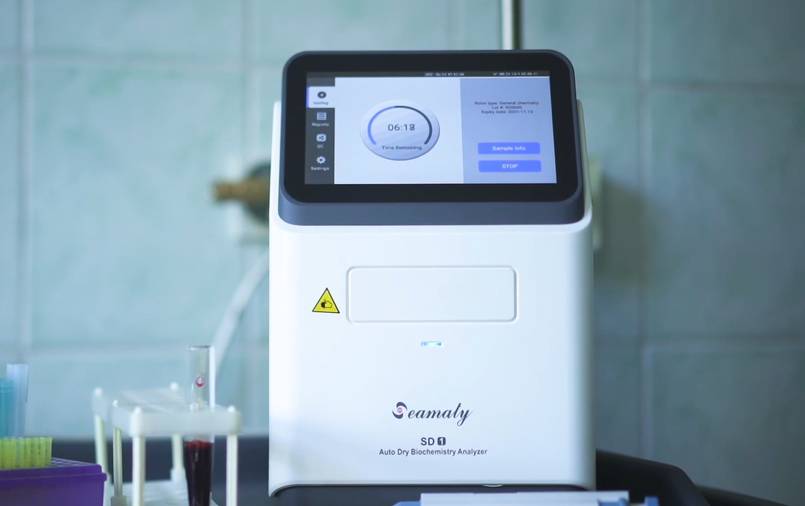
2021-09-01
Point-of-care testing (POCT) refers to clinical testing performed next to the patient (bedside testing.) POCT is usually not necessarily performed by a clinical laboratory technician, but is analyzed immediately at the sample site. This test method eliminates the complex processing of samples during laboratory testing, resulting in rapid test results.